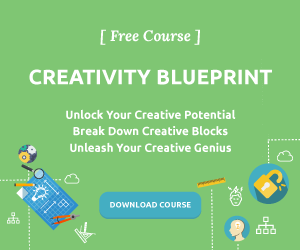Augmented Creativity and The Age of Centaurs
Did you know that creativity is going to become the third most important job skill by 2020? Why, well because the University of Oxford estimates that nearly 50% of jobs are at risk from automation. Technologies like artificial intelligence and machine learning will replace many jobs that involve doing routine tasks or analytical work and the jobs of the future will require that most human of skills...your creativity. But if you really want to have the competitive edge in this new age you need to develop what I call ‘Augmented Creativity’.
My name is James Taylor and I wanted to tell you a quick story. On May 11th, 1997 in a New York conference room something happened which changed the course of humanity and will impact all of our lives.
In this episode, you'll learn:
- Important Job Skill By 2020
- Augmented Creativity
- Artificial Intelligence
- Centaurs
- IBM supercomputer Deep Blue
- King’s Indian Attack
Enjoy this episode?
If you enjoyed the show, please rate it on iTunes or Stitcher and write a brief review. That would really help get the word out and raise the visibility of the Creative Life show.
Transcript
Did you know that creativity is going to become the third most important job skill by 2020? Why, well because the University of Oxford estimates that nearly 50% of jobs are at risk from automation. Technologies like artificial intelligence and machine learning will replace many jobs that involve doing routine tasks or analytical work and the jobs of the future will require that most human of skills...your creativity. But if you really want to have the competitive edge in this new age you need to develop what I call ‘Augmented Creativity’.
My name is James Taylor and I wanted to tell you a quick story. On May 11th, 1997 in a New York conference room something happened which changed the course of humanity and will impact all of our lives. It’s been hailed as one of the most momentous occasions in human technology, on par with the Wright brothers’ first flight or the moon landing.
At the centre of the conference room was a table, and on that table was a chess board. On one side of the table sat Garry Kasparov, perhaps the greatest chess player in the world. On the other was computer scientist called Murray Campbell, whose job it was to move the chess pieces at the instructions of a computer which sat at his side. That computer was connected to the IBM supercomputer Deep Blue. Deep Blue didn’t think and play chess like a human, with human creativity and intuition. Instead it played like a machine, systematically evaluating up to 200 million possible moves per second by using brute force logic.
The reason why the room was packed with journalists and news crews from around the world was because this was not about a game of chess, it was about the contest between human and artificial intelligence that would go on to shape the 21st Century. It was a test of man versus machine.
In Match 1 Kasparov began with a move called the King’s Indian Attack which helped him beat Deep Blue. However the second match was essentially a draw and this put Kasparov off balance. By the time they got to Match 5 Kasparov was overhead saying “I’m not afraid to admit I’m afraid!”
In Game Six this happened! Kasparov lost his concentration and in a routine opening-game move he made a mistake that was so obvious spectators gasped and cried in disbelief. Deep Blue had won the game. Statistically it’s five times easier to become a billionaire than to have beaten Garry Kasparov.
This was proof that machines could surpass humans in complex cognitive tasks that was had always thought were the preserve of our developed brains. The machines have finally come for the white collar jobs, the college graduates and the decision makers. Now after Garry Kasparov was beaten by Deep Blue he went to a pretty dark place.
Can you imagine how it would feel to give your whole life to becoming good at something only to have a machine be able to do it faster, better and ultimately cheaper? But then something interesting happened. Kasparov and other chess players decided that instead of treating computers and AI as adversaries they would embrace them as collaborators.What happened next in the world of chess is a useful preview of what I believe will happen to many new industries in this new age of artificial intelligence.
For Kasparov and other Chess Grandmasters it meant that they had to ditch their notebooks of classic chess moves and switch up their preparation habits. It was like asking an artist to start drawing on a screen instead of a canvas. But in chess, as it will soon be in marketing, its a matter of adapting to survive. Those who quickly mastered these new methods thrived, and the few who didn’t disappeared. As the era of human versus machine competition ended, a new one opened up based on human + machine collaboration. These new hybrid collaboration systems are called Centaurs - after the half-human, half-horse creatures of Greek mythology.
In the world of chess Centaurs (a human paired with an AI program) will beat the strongest human player. It will also beat an artificial intelligence working on its own. Centaurs combine the creative and strategic thinking of a human with the tactical capabilities of AI. Together what they create is what I call Augmented Creativity. And in future episodes I’m going to give you an insight into what this looks like and how you can augment your own creativity.
Thanks for watching



